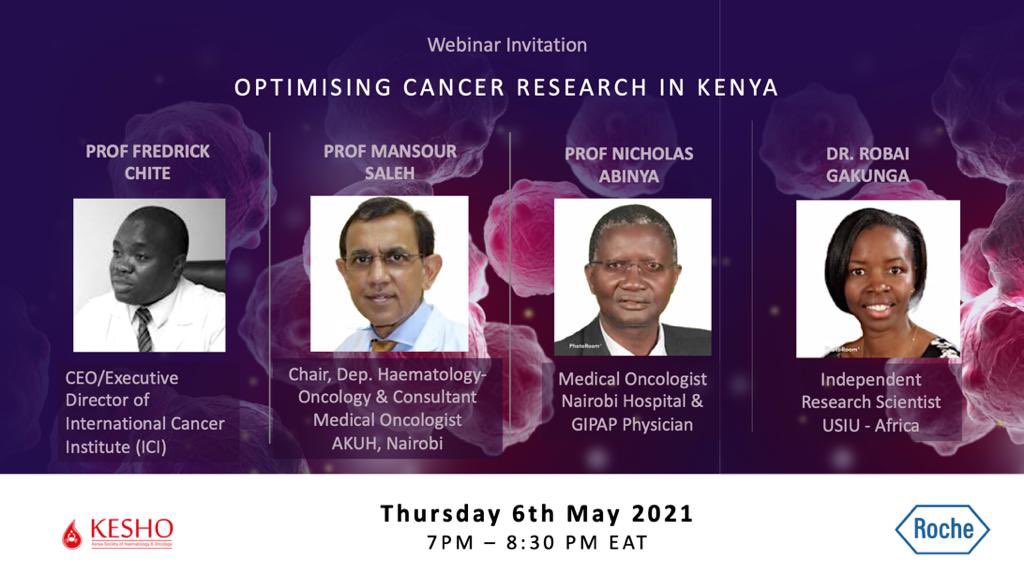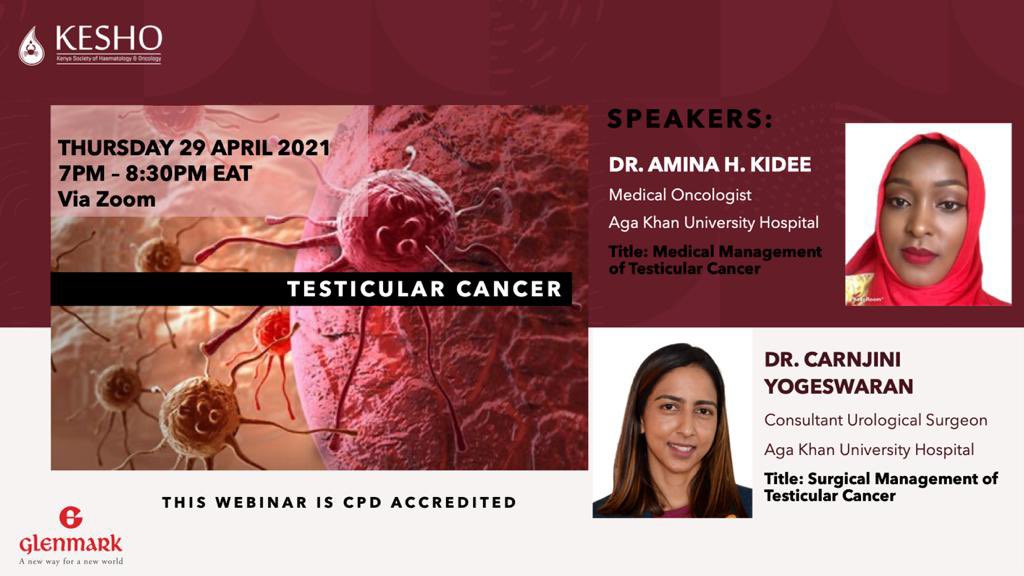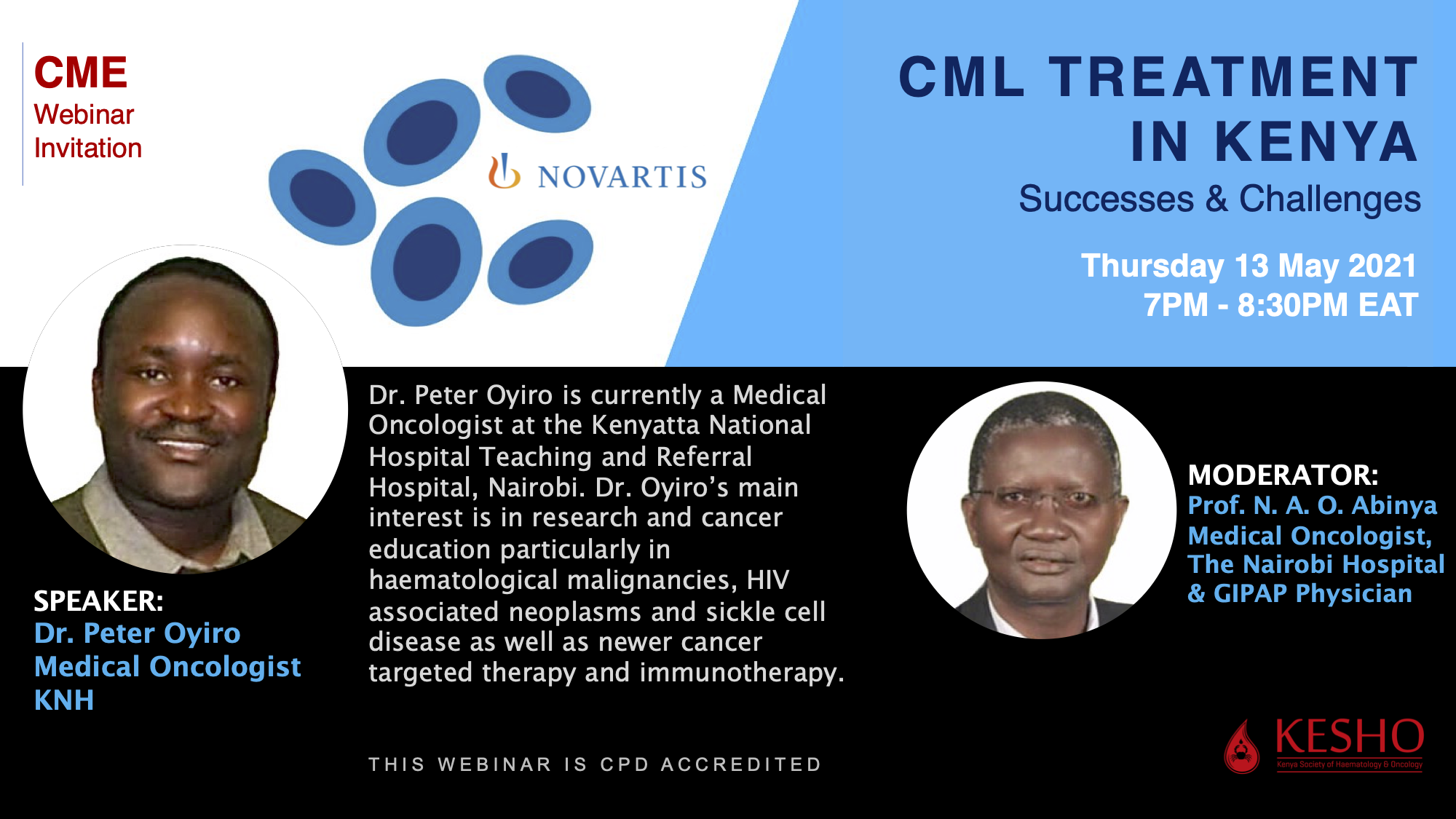
- This event has passed.
Optimizing Cancer Research in Kenya
Event Navigation

Moderator: Dr. Veronica Manduku, Radiologist at Kenya Medical Research Institute
Sponsor: Roche
Presenters:
- Prof. Mansour Saleh, Chair, Department of hematology and oncology and consultant medical oncologist, Aga Khan University Hospital, Nairobi.
- Prof. Fredrick Chite, CEO/Executive Director of International Cancer Institute (ICI)
- Prof. N.A.O. Abinya, Medical Oncologist, the Nairobi Hospital and GIPAP Physician
- Dr. Robai Gakunga, Independent Research Scientist, USIU-Africa
Cancer research in Kenya is mainly in the universities and is more of epidemiological studies with limited clinical research. Considering the increasing demand for cancer research in Kenya, there is a need to develop a curriculum, build capacity and create infrastructures to support quality research. Many drugs used in Africa are not tested in Africa, despite research showing variations in transcriptomics for example in triple-negative breast cancer for different races. Cancer research requires a multidisciplinary approach (MDT). Funding is a major challenge in cancer research. Additionally, managing clinical practice and research becomes difficult in Kenya where clinicians are expected to spend 100% of the time in practice, unlike in the USA, where there is the flexibility of working hours. In the USA, a clinician can spend 50% of the time in clinical practice and 50% in research. In Kenya, the workloads for doctors, clinicians, and lecturers are overwhelming, with no protected time for research from the institutions. In-Africa collaborations, as opposed to Africa-America, and networks between clinicians, consultants, academic institutions, and government agencies, would greatly help to generate local data. Data sharing and Trust is needed and the ability to work together to accomplish a goal. The University of Nairobi has an oncology training fellowship that is helping to build capacity in the region. Commitment in science for clinicians as well as developing and reviewing protocols collectively is necessary. Considering the high cost of cancer drugs, cancer clinical trials should seek collaborations with pharmaceutical companies. Community and patient engagement are important in clinical trials. There is a need for a data repository and registries. There is an epidemiological registry in breast cancer collected at Kenya National Hospital in collaboration with Roche. Collaborations will facilitate sharing of human resources, infrastructure, and samples. The literature review is equally important. The exchange program for fellows helps with gaining experience to see what other researchers are doing. Scientists are encouraged to apply for research grants, however small. There is a need for seed funds for young investigators. Government-government collaborations are also encouraged. Research governance is necessary. in lobbying government funding, in priority areas including the most prevalent cancers (breast cancer in women, prostate cancer in men).
.

